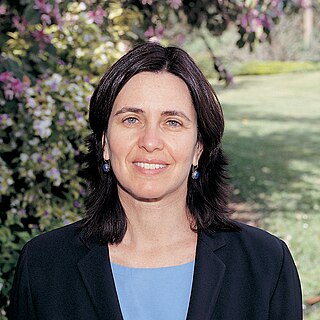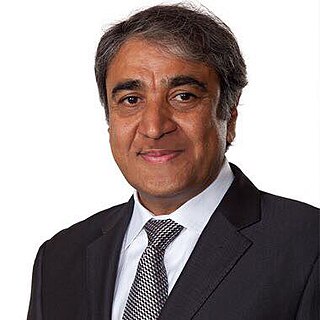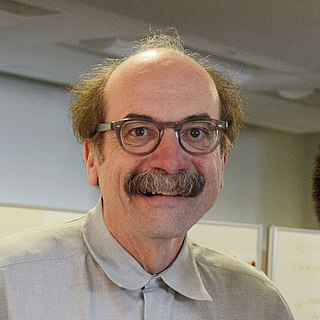
Carnegie Mellon University (CMU) is a private research university based in Pittsburgh, Pennsylvania. Founded in 1900 by Andrew Carnegie as the Carnegie Technical Schools, the university became the Carnegie Institute of Technology in 1912 and began granting four-year degrees. In 1967, the Carnegie Institute of Technology merged with the Mellon Institute of Industrial Research, formerly a part of the University of Pittsburgh, to form Carnegie Mellon University. With its main campus located 3 miles (5 km) from Downtown Pittsburgh, Carnegie Mellon has grown into an international university with over a dozen degree-granting locations in six continents, including degree-granting campuses in Qatar and Silicon Valley, and more than 20 research partnerships.

The Carnegie Mellon University College of Engineering is the academic unit that manages engineering research and education at Carnegie Mellon University. The College can trace its origins from Andrew Carnegie's founding of the Carnegie Technical Schools. Today, The College of Engineering has seven departments of study and is ranked 4th nationally.

The Heinz College of Information Systems and Public Policy at Carnegie Mellon University in Pittsburgh, Pennsylvania, United States is a private graduate college that consists of one of the nation's top-ranked public policy schools—the Network of Schools of Public Policy, Affairs, and Administration-accredited School of Public Policy & Management—and information schools—the School of Information Systems & Management. It is named for the late United States Senator H. John Heinz III (1938-1991) from Pennsylvania. The Heinz College is also a member of the Institute for Information Infrastructure Protection, one of 24 members of the iCaucus leadership of iSchools, and a founding member of the MetroLab Network, a national smart city initiative and New America's Public Interest Technology University Network.

The School of Computer Science (SCS) at Carnegie Mellon University in Pittsburgh, Pennsylvania, US is a school for computer science established in 1988. It has been consistently ranked among the top computer science programs over the decades. U.S. News & World Report currently ranks the graduate program as tied for 1st with Massachusetts Institute of Technology, Stanford University, and University of California, Berkeley. It is ranked 1st in the United States on Computer Science Open Rankings, which combines scores from multiple independent rankings.

Shafrira Goldwasser is an Israeli-American computer scientist and winner of the Turing Award in 2012. She is the RSA Professor of Electrical Engineering and Computer Science at MIT, a professor of mathematical sciences at the Weizmann Institute of Science, Israel, co-founder and chief scientist of Duality Technologies and the director of the Simons Institute for the Theory of Computing in Berkeley, CA. She was on the Mathematical Sciences jury for the Infosys Prize in 2020.

Dr. Mao Yisheng (Chinese: 茅以升; pinyin: Máo Yǐshēng; Wade–Giles: Mao2 I3-sheng1; January 9, 1896 – November 12, 1989) was a Chinese structural engineer and social activist. He was one of the most famous Chinese structural engineers, a pioneer in bridge construction, and a social activist.

Arthur Arton Hamerschlag was an American electrical and mechanical engineer who served as the first President of Carnegie Mellon University in Pittsburgh, Pennsylvania, United States.

Krzysztof "Kris" Matyjaszewski is a Polish-American chemist. He is the J.C. Warner Professor of the Natural Sciences at the Carnegie Mellon University Matyjaszewski is best known for the discovery of atom transfer radical polymerization (ATRP), a novel method of polymer synthesis that has revolutionized the way macromolecules are made. In 2011 he was a co-winner of the prestigious Wolf Prize in Chemistry.

Edmund Melson Clarke, Jr. was an American computer scientist and academic noted for developing model checking, a method for formally verifying hardware and software designs. He was the FORE Systems Professor of Computer Science Emeritus at Carnegie Mellon University. Clarke, along with E. Allen Emerson and Joseph Sifakis, was a recipient of the 2007 Association for Computing Machinery A.M. Turing Award.

Manuela Maria Veloso is the Head of J.P. Morgan AI Research & Herbert A. Simon University Professor in the School of Computer Science at Carnegie Mellon University, where she was previously Head of the Machine Learning Department. She served as president of Association for the Advancement of Artificial Intelligence (AAAI) until 2014, and the co-founder and a Past President of the RoboCup Federation. She is a fellow of AAAI, Institute of Electrical and Electronics Engineers (IEEE), American Association for the Advancement of Science (AAAS), and Association for Computing Machinery (ACM). She is an international expert in artificial intelligence and robotics.

Pradeep Kumar Khosla is an academic computer scientist and university administrator. He is the current chancellor of the University of California, San Diego. He was appointed to the position by the president of the University of California, Mark Yudof, on May 3, 2012. His term began August 1, 2012, following the resignation of the previous chancellor Marye Anne Fox.

David M. Kelley is an American businessman, entrepreneur, designer, engineer, and teacher. He is founder of the design firm IDEO and a professor at Stanford University. He has received several honors for his contributions to design and design education.

Subra Suresh is an Indian-American biological engineer, materials scientist, and academic administrator. On 1 January 2018, he was inaugurated as the fourth President of Singapore's Nanyang Technological University (NTU), where he is also the inaugural Distinguished University Professor. He was the Vannevar Bush Professor of Engineering at the Massachusetts Institute of Technology (MIT), and Dean of the School of Engineering at MIT from 2007 to 2010 before being appointed as Director of the National Science Foundation (NSF) by Barack Obama, where he served from 2010 to 2013. He was the president of Carnegie Mellon University (CMU) from 2013 to 2017.
Engineering and Public Policy, informally known as EPP, is an interdisciplinary academic department within the Carnegie Mellon College of Engineering. EPP combines technical analysis with social science and policy analysis, in order to address problems in which knowledge of technical details is critical to decision making. EPP is one of three departments in United States universities that pioneered academic degree programs to address the profound societal changes brought about by technology.
Tom Michael Mitchell is an American computer scientist and E. Fredkin University Professor at the Carnegie Mellon University (CMU). He is a former Chair of the Machine Learning Department at CMU. Mitchell is known for his contributions to the advancement of machine learning, artificial intelligence, and cognitive neuroscience and is the author of the textbook Machine Learning. He is a member of the United States National Academy of Engineering since 2010. He is also a Fellow of the American Association for the Advancement of Science and a Fellow the Association for the Advancement of Artificial Intelligence. In October 2018, Mitchell was appointed as the Interim Dean of the School of Computer Science at Carnegie Mellon.
Angel G. Jordan was a Spanish-born American electronics and computer engineer known as the founder of the Software Engineering Institute (SEI) and co-founder of the Robotics Institute at Carnegie Mellon University (CMU) and served on its faculty for 55 years, since 2003 as Emeritus. He was instrumental in the formation of the School of Computer Science (SCS) at Carnegie Mellon. He has made contributions to technology transfer and institutional development. He served as Dean of Carnegie Mellon College of Engineering and later as the provost of Carnegie Mellon University.
Howard Brenner was a professor emeritus of chemical engineering at Massachusetts Institute of Technology. His research profoundly influenced the field of fluid dynamics, and his research contribution to fundamental principles of fluid dynamics has been deeply honored. His first textbook, Low Reynolds Number Hydrodynamics, earned him a reputation lasting several decades. His profession though fundamental research is on microfluidics, complex liquids, interfacial transport process, emulsion rheology, and multiphase flows.
Ragunathan "Raj" Rajkumar is the George Westinghouse Professor of Electrical and Computer Engineering at Carnegie Mellon University in Pittsburgh, Pennsylvania. He is also affiliated with the Robotics Institute and the Heinz School of Information Systems and Public Policy at Carnegie Mellon University. He also serves as the Director of the Metro21 Smart Cities Institute and as the Director of the Mobility21 USDOT National University Transportation Center at Carnegie Mellon University. He also leads the General Motors-CMU Connected and Autonomous Driving Collaborative Research Laboratory (CAD-CRL), and the Real-Time and Multimedia Systems Lab (RTML) there.
Daniel P. Siewiorek is an American computer engineer and scientist, currently the Buhl University Professor of Electrical and Computer Engineering and Computer Science at Carnegie Mellon University.
Jacobo Bielak is a Mexican-born structural engineer.












